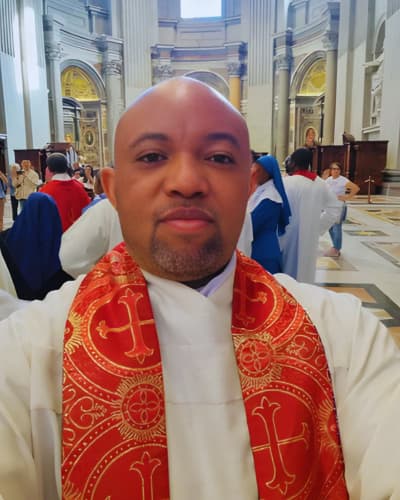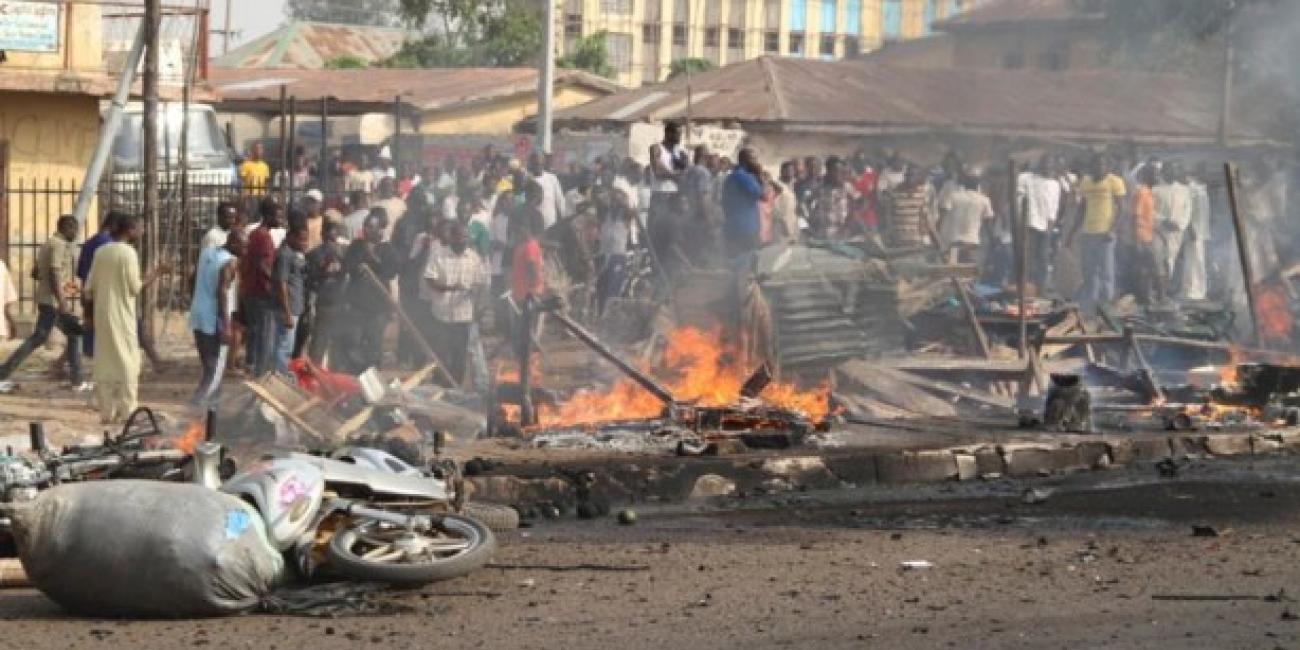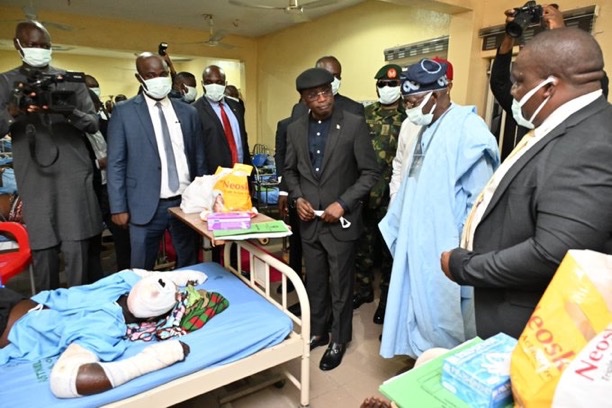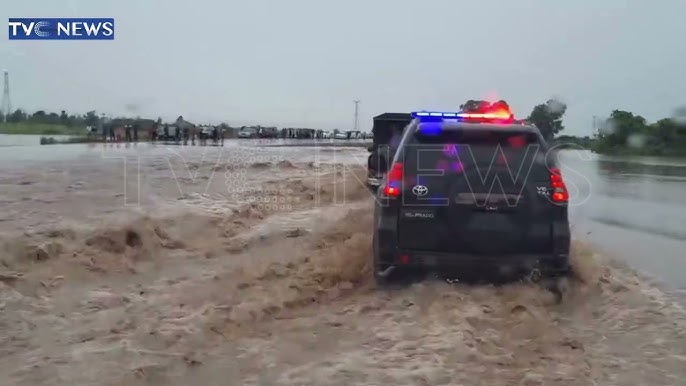In a powerful statement amid escalating violence in Nigeria, Rev. Fr. Angelo Chidi Unegbu, a Nigerian Catholic priest, has called on communities facing attacks to prioritize practical self-defense measures over relying solely on divine intervention. His remarks, posted on Facebook on June 17, 2025, were a direct response to the brutal attacks in Benue State, where over 200 people were reportedly killed by suspected Fulani herdsmen in a two-day rampage. Unegbu’s message challenges the notion propagated by some religious leaders that communities should passively wait for divine protection, arguing instead for unity and strategic action to counter such threats.
Unegbu’s post specifically criticized preachers who encourage people to fold their hands and wait for God to miraculously fight for them, suggesting that such advice inadvertently aids aggressors. He emphasized the importance of collective action, stating, Times of insecurity of lives is time to get united irrespective of your religious, denominational or ideological differences. This is the law of common sense. His call for unity and strategic consultation reflects a pragmatic approach to survival in a region plagued by recurring violence, particularly in Nigeria’s Middle Belt, where Christian communities have faced targeted attacks.
The context of Unegbu’s statement is rooted in the ongoing security crisis in Benue State, where Fulani herdsmen, often armed with illegal weapons, have been accused of systematic attacks on Christian farming communities. These attacks, described as well-organized and systematic by other clergy like Fr. Moses Aondoanenge Igba, have resulted in significant loss of life and displacement. For instance, during Holy Week 2025, over 70 people were killed in Benue and Plateau States, with Fr. Igba noting the government’s failure to address the armed herders’ activities while criminalizing communities that attempt self-defense.
Unegbu’s remarks resonate with a broader sentiment among some Nigerian clergy who are increasingly vocal about the government’s inaction. The Nigeria Catholic Diocesan Priests Association (NCDPA) in Makurdi Diocese recently condemned what they described as the systematic persecution of Christians in Benue, linking attacks to the testimony of Bishop Wilfred Chikpa Anagbe before the U.S. House Foreign Affairs Subcommittee in March 2025. The NCDPA highlighted the military’s perceived complicity, noting their failure to intervene effectively, even when attacks occur near checkpoints.
The priest’s call for action also reflects a growing frustration with religious narratives that may discourage proactive measures. He warned that those advising against self-defense belong to the camp of the enemy, underscoring the urgency of protecting lives and property. Unegbu’s statement included a poignant Igbo phrase, Ndụ bụ isi, meaning life is paramount, emphasizing the priority of survival in crisis situations.
This perspective aligns with the experiences of other Nigerian priests who have faced violence directly. Fr. Isaac Agabi, kidnapped by Fulani herdsmen in 2020, recounted his brutal ordeal and escape, attributing his survival to both divine grace and practical action—fleeing when the opportunity arose. Similarly, Fr. Igba’s decision to remain with his parishioners during attacks, offering hope while directing them to safety, illustrates the balance between faith and action that Unegbu advocates.
Unegbu’s critique extends beyond immediate security concerns, touching on broader socio-political issues in Nigeria. In previous posts, he has addressed systemic problems, such as the economic disparity where unemployed foreigners reportedly fare better than educated Nigerians, and the country’s overemphasis on religious symbolism over industrial development. These statements suggest a consistent pattern in his advocacy for practical solutions to Nigeria’s challenges, whether economic, social, or security-related.
The violence in Benue, particularly in areas like Ukum and Logo counties, has been linked to an alleged Islamization agenda, a claim echoed by clergy like Fr. Igba and Bishop Anagbe. These attacks often target Christian communities during significant religious periods, such as Holy Week or Christmas, intensifying perceptions of religious persecution. The lack of arrests or effective military response, as noted by experts like Douglas Burton of Truth Nigeria, further fuels distrust in the government’s ability or willingness to protect vulnerable populations.
Unegbu’s message has sparked discussion on platforms like X, where users have debated its implications, with some speculating whether it indirectly critiques prominent religious figures like Pastor Enoch Adeboye. Posts on X reflect mixed sentiments, with some praising Unegbu’s call for action and others questioning the compatibility of his stance with traditional Christian teachings on faith. However, these discussions remain inconclusive, reflecting the complexity of balancing spiritual beliefs with practical realities in a crisis-ridden context.
The priest’s broader social commentary also includes critiques of cultural and religious practices that he views as misguided. For example, he has previously dismissed beliefs in spiritual spouses as fairy tales and criticized rituals like water sacrifices or excessive fasting for wealth, advocating for rational approaches to personal and societal challenges. This pattern suggests Unegbu’s commitment to challenging dogmas that hinder progress, whether in the form of passive faith during violence or reliance on superstition for prosperity.
The ongoing violence in Nigeria, particularly in the Middle Belt, has displaced millions, with over 16.2 million Christians reported to be living in internally displaced persons (IDP) camps across sub-Saharan Africa. These attacks, often perpetrated by Fulani militants, Boko Haram, or other jihadist groups, have crippled communities, leaving women and children especially vulnerable after losing breadwinners. Unegbu’s call for unity and strategic action aligns with appeals from groups like Open Doors, which advocate for protection and justice for affected Christians.




